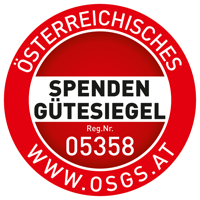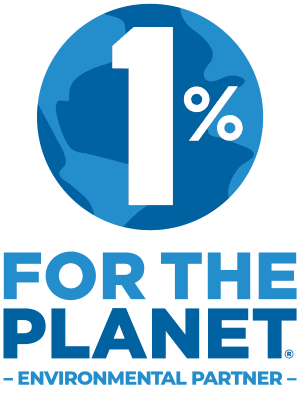Find information about all our speakers on here.
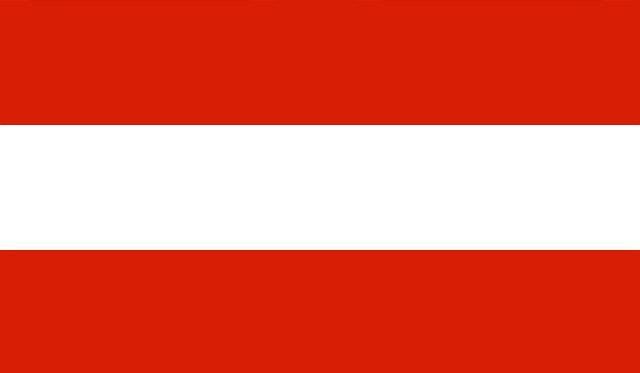
Mag. Agnes Zauner
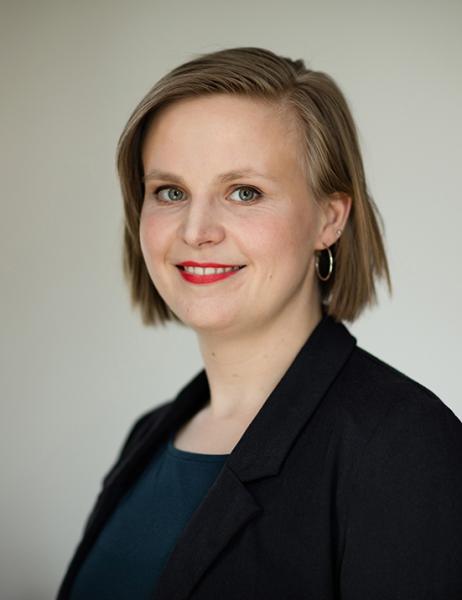
Agnes Zauner is the new director of the Austrian environmental organization GLOBAL 2000. Born in 1990, she grew up in Lower Austria region and soon became active against nuclear power and for environmentally friendly transport policy. She studied in Vienna, Warsaw, Berlin and Novosibirsk and was political advisor for the Austrian OSCE Chairmanship at the embassy in Kiev, then director of a transcultural youth association in Berlin. Due to her long-standing commitment to environmental politics, she now puts her personal focus on trade, democratic issues and climate justice.
Dr. Alice Vadrot
Alice Vadrot is Assistant Professor for International Relations with a focus on Environmental Politics at the Department of Political Science of the University of Vienna and Visiting Research Fellow at the Centre for Science and Policy (CSaP) of Cambridge University.
She is a political scientist and the principal investigator of the ERC funded project MARIPOLDATA running from November 2018 to October 2023. The research team led by Dr. Alice Vadrot develops and applies a new interdisciplinary and multi-scale approach to study new forms of power at the intersection between science, and politics, with the objective to understand how we will govern Oceans in the future and how inequalities related to science and data infrastructures can be addressed, studied and reduced.
Vadrot holds a PhD from the University of Vienna, which she completed in 2013. From 2015 to 2017, she was a Research Fellow at the Centre for Science and Policy of the University of Cambridge and Erwin Schrödinger Fellow of the Austrian Science Fund. Her work addresses the role of knowledge and science in global environmental politics and policies. She has conducted extensive research on the Intergovernmental Platform on Biodiversity and Ecosystem Services (IPBES) and developed the concept of “epistemic selectivities”, which she uses to describe and understand the processes that lead to epistemic authority, legitimacy and scientific and political self-evidence in global environmental politics. Vadrot is the author of “The Politics of Knowledge and Global Biodiversity” (Routledge, 2014) and editor of several special issues, research articles and editorials.
Dr. Wolfgang Cramer
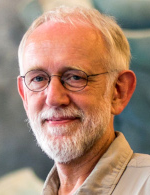
Dr. Wolfgang Cramer is a geographer, ecologist and global ecologist. He is research director (CNRS) at the Institute of Biodiversity and Marine and Continental Ecology (IMBE) in Aix-en-Provence (France). From 1987 to 1993 he taught and researched at the Institute of Geography at the University of Trondheim, Norway (also as a research associate at the International Institute for Applied Systems Analysis (IIASA), Laxenburg, Austria). In 1992 he joined the newly founded Potsdam Institute for Climate Impact Research (PIK) as head of the department Global Change and Natural Systems. In 2003 he was appointed Professor of Global Ecology at the University of Potsdam. In 2011, he left Germany to join the Mediterranean Institute for Ecology and Palaeoecology (IMEP) in Aix-en-Provence to assist in its transformation into the new IMBE Institute in 2012. In 2017, he was elected associate member of the French Academy of Agriculture. For international scientific cooperation, Wolfgang Cramer has contributed in various capacities to the International Geosphere-Biosphere Programme (IGBP), DIVERSITAS and its successor Future Earth. He was co-chairman of the scientific committee of ecoSERVICES and always connected to the PECS programme.
Since 1992 Wolfgang Cramer has contributed to the IPCC (Nobel Peace Prize 2007) with various responsibilities. Together with Joël Guiot (CEREGE, Aix-en-Provence) he coordinates the Mediterranean experts on climate and environmental change, MedECC. He is co-editor of the journal Regional Environmental Change, published by Springer Nature Publishers. Together with Hervé Le Treut (Pierre and Marie Curie University, Paris) he is co-chair of the French National Committee on Global Change.
Dr. Simone Gingrich
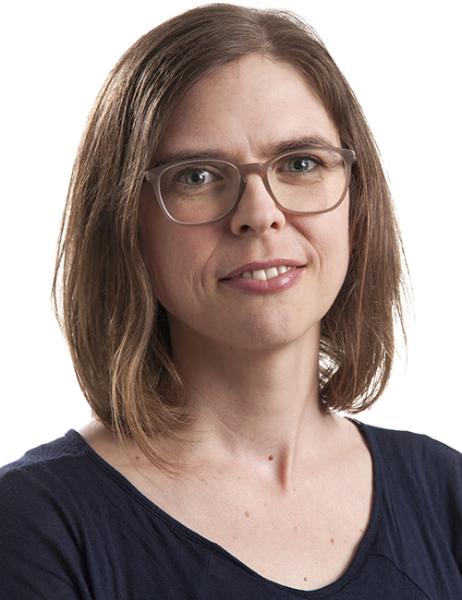
Simone Gingrich is a research assistant at the Institute of Social Ecology at the University of Natural Resources and Applied Life Sciences, Vienna. She studied ecology at the University of Vienna, completed a doctorate in social ecology (University of Klagenfurt) and habilitated in social ecology at the University of Natural Resources and Applied Life Sciences Vienna. Her research deals with long-term changes in sustainability problems. She is particularly interested in changes in land use and energy use in the course of industrialisation processes. In 2017 she received an ERC Starting Grant for her project "Hidden Emissions of Forest Transitions", in which she is investigating climate protection effects of reforestation in the context of industrialisation processes. Since 2018 she is a member of the Young Academy of the Austrian Academy of Sciences.
Dr. Josef Settele
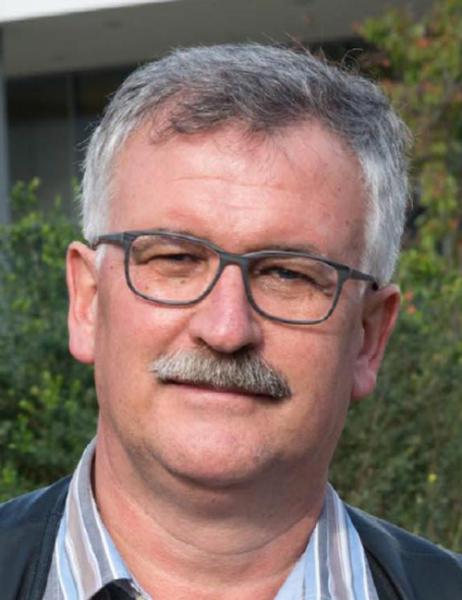
Josef (Sepp) works at the UFZ – Helmholtz Centre for Environmental Research in Halle/Germany, where he heads the group on “animal ecology and social-ecological systems”. He holds a PhD in agriculture and is professor of ecology at the Martin-Luther-University of Halle-Wittenberg. Before being co-chair of the Global Assessment of IPBES, he acted as LA in the Asia-Pacific Assessment and as CLA of the Pollination Assessment. He also was CLA of the 5th Assessment Report of IPCC. His research focusses on the interface of land use, climate and biological diversity.
Dr. Violette Geissen
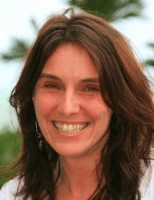
Prof. Dr. Violetta Geissen is professor of soil degradation and Land Management at Wageningen University. Her special expertise includes Physicochemical soil degradation with specific focus on i) Process mechanisms of soil degradation by (organic) pollutants from diffuse sources and ii) land management strategies.
Dr. Franz Essl
Ass.-Prof. Dr. Franz Essl teaches and researches at the Department of Botany and Biodiversity Research at the University of Vienna. He is considered a leading expert in neo-biota research, is one of the researchers whose work is particularly frequently cited ("Highly Cited Scientists"), and is also on the management team of the newly founded Austrian Biodiversity Council. The Council is committed to strengthening biodiversity in Austria.
DDr. Martin Grassberger
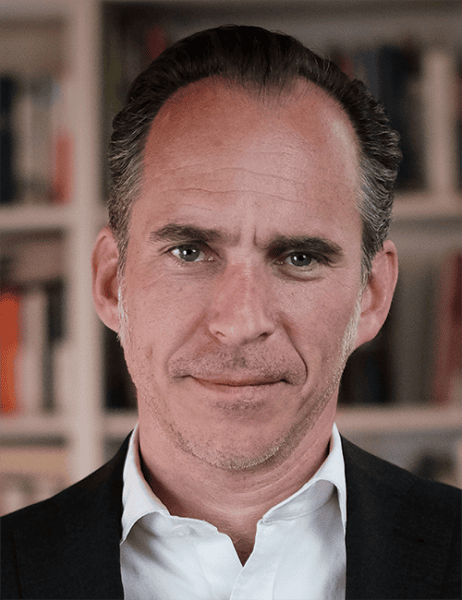
Martin Grassberger, MD, PhD studied medicine and biology in Vienna and is professor for forensic medicine. He teaches at the Faculty of Life Sciences at the University of Vienna and at the Medical Faculty of the Sigmund Freud University Vienna in the fields of human biology, evolutionary medicine, forensic medicine and pathology. Grassberger is also engaged in all things related to the human microbiome and regenerative agriculture. His book "Das leise Sterben" is the Science Book of the Year 2020 in the category Natural Science/Technology.
Dr. Johannes Rüdisser
Dr. Johannes Rüdisser, Institute for Ecology, University of Innsbruck Dr. Johannes Rüdisser is a landscape ecologist, GIS specialist and nature and environmental educator. At the Institute of Ecology at the University of Innsbruck, he is working on the question of how biodiversity and human activities influence each other and how biodiversity can best be recorded, measured and presented. He is a member of the Austrian Biodiversity Council and initiator and director of the butterfly monitoring programme "Viel-Falter" (Many-Folders), in which dedicated laymen and experts regularly observe butterflies.
Dr. Hans Rudolf Herren
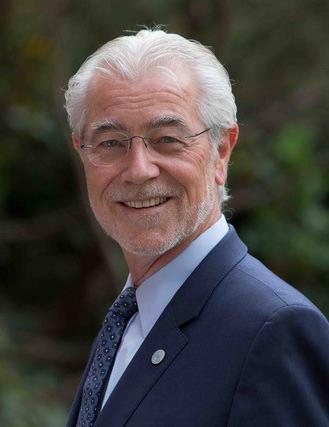
Hans Rudolf Herren began his work in Africa in 1979 at the International Institute of Tropical Agriculture (IITA) in Nigeria, after completing his post-graduate studies at Berkeley University in California, where he completed his qualifications in agricultural science and entomology. He worked at the IITA until 1994, when he became director of one of the largest biological pest control programs ever implemented and achieved the groundbreaking successes that later led to the World Food Prize. Herren not only left his mark on the IITA in scientific terms, but was also responsible for management, founded a plant health department and was responsible for a major reorganization. He used this experience to develop the Institute for Insect Physiology and Ecology (ICIPE) into a world-leading centre of excellence - particularly in the control of the malaria mosquito - from 1994 onwards.
Hans Rudolf Herren used the prize money from the World Food Prize to establish the BioVision Foundation. In 2002 he received the German Brandenberger Prize for his efforts to improve nutrition and livelihoods, and in 2003 the Tyler Environmental Prize. Since 2005 he has been President of the Millennium Institute in Washington (USA). In addition to his participation in various international bodies for the promotion of ecological and sustainable development, Dr. Herren is co-leader, together with Prof. Judi Wakhungu, Kenya, of the worldwide survey on the sustainability of agriculture IAASTD (International Assessment of Agricultural Knowledge, Science & Technology), whose report was published in April 2008.
In 2013 Hans Rudolf Herren and his Biovision Foundation were awarded the Alternative Nobel Prize and also won the Swiss Award in the category Society. In 2017 Herren was elected to the Board of the International Federation of Organic Agriculture Movements (IFOAM).
Dr. Marta Guadalupe Rivera-Ferre
Agroecology and Food Systems Chair, Director UNESCO Chair Women, Development and Culture I3 Fellow. Honorary Research Fellow (University of Coventry) Inclusive Societies, Policies and Communities Group. "Sustainable communities, social innovations and territories
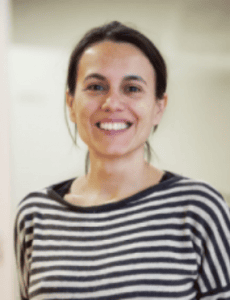
Marta G. Rivera-Ferre has a multidisciplinary profile in the analysis of agri-food systems for sustainable development. Coming from a natural sciences profile, she has navigated towards the field of Sociology of agriculture and food. She has a particular interest in alternative agri-food systems and networks, particularly focused on Food Sovereignty (FS); the analysis of agri-food systems as complex socioecological systems; the analysis of gender and commons theories as to be adopted in agri-food research; and the role of people’s knowledge in adaptation to climate change. One of the contributions of her research has been to show that agri-food science is performed in a context known as ignorance state, the implications this has for the agri-food system governance and related research disciplines, and the role that social sciences can play in this scenario. she has participated in two United Nations panel of experts, the International Assessment of Agricultural Knowledge, Science and Technology for Development (IAASTD, 2005-2008) and the Intergovernmental Panel on Climate Change (IPCC, Working Group II: Impacts, Adaptation and vulnerability, AR5-Rural areas, 2011-2014; SRCCL-Food Security, 2017-2019; AR6-Poverty, Livelihoods and Sustainable Development). She has more than 100 articles in these topics and has coordinated several national and international projects and scientific seminars (on Agroecology, Food Sovereignty and Feminist Economics). Since 2012 she is associate research professor at UVic-UCC where she coordinates the research line Sustainable communities, social innovations and territories of the SGR-awarded group Inclusive Societies, Policies and Communities. She is director of the Chair on Agroecology and Food Systems at Uvic, Honorary Research Fellow of the University of Coventry (UK) and visiting professor at the University of Gastronomic Sciences (IT).
DI Ina Homeier
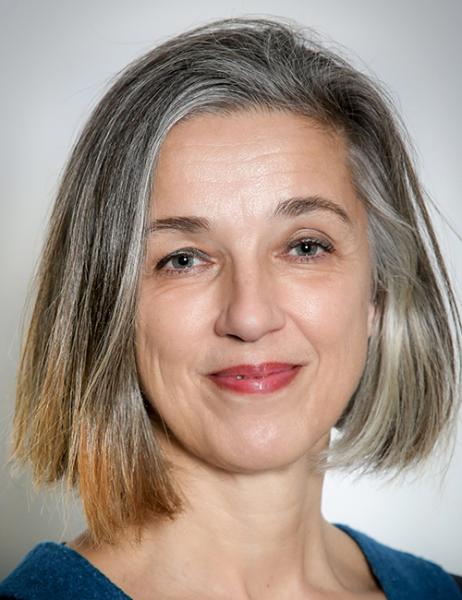
DIin Ina Homeier is an architect and urban planner. As head of the project office Smart City Vienna, her area of responsibility includes Smart City activities of the City of Vienna, both in terms of strategy and content. Under her leadership, numerous nationally and EU-funded projects in the Smart City area have been and are being carried out. From the beginning of 2013, she was in charge of the development of the Smart City Vienna framework strategy, which was adopted by the Vienna City Council in June 2014. In 2016, a monitoring system for this umbrella strategy was developed under her leadership and implemented for the first time in 2017. From 2018 she coordinated the update of the Smart City Vienna Framework Strategy, which was adopted by the Vienna City Council at the end of June 2019.
Nicolas Dendoncker, PhD
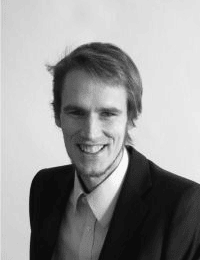
Nicoals Dendoncker entered the research world with a Masters in geography, specialised in land use science. During his PhD in Geography at UCLouvain (Belgium), he developed large-scale models of land use change for Europe, according to different socio-economic and climate change scenarios. Though this generated land use change maps that have been used quite a few times to assess impacts of these changes on biodiversity and, to a lesser extent, ecosystem services, he was unsatisfied for two reasons. First, by looking at spatial statistics over large extents you only get a glimpse of correlations but have no idea about causalities. Second, such results may be significant to science but lack clear impacts on decision-making.
During his Postdoc at the University of Edinburgh, he turned to agent-based modelling of land use change at the local scale and started working with sociologists in addition to ecological scientists. This led him to try and understand people and farmers’ motivations to act on the environment, and to start interacting with decision-makers. He strongly believes that science should not only be interdisciplinary but rather transdisciplinary, i.e. try to interact with civil society and decision-makers in order to accelerate the much-needed transition to sustainability. Hence, scientists should generally be issue advocates, acknowledging their non-neutrality and the normative character of all research.
As a professor of geography at the University of Namur (back in Belgium) and coordinator of a Masters in Smart Rurality, he tries to pass this message to his students, and argues that a change in our agricultural systems is the first necessary step towards sustainability. Lately, he has been involved as a lead author in the IPBES values assessment and became interested in the issue of inclusive valuation of Ecosystem Services as a tool to reduce social inequalities, create positive environmental change, and question our Western democracies.
Leo Kudlicka
Leo Kudlicka heads the Social Responsibility and Solidarity Department in the Pastoral Office of the Diocese of Gurk. As diocesan advisor for Church and the World of Work, he has been working for several years on the conditions for shaping decent and environmentally friendly work, on concepts of an expanded understanding of work and on the challenges posed by the fourth industrial revolution to gainful employment and social security systems. Since the process on the "Social Word10+" of the Ecumenical Council of Churches in Austria, Kudlicka has been increasingly concerned with alternative solidarity-based economic approaches to shaping the community on the basis of local eco-social initiatives. He is a member of the Civil Society Platform Carinthia-Koroška and co-initiator of the Carinthian Network against poverty and social exclusion. Leo Kudlicka is co-founder and chairman of "Friesach im Wandel", the first Carinthian transition town. This civil society grassroots movement has been successfully initiating and developing various projects on the ground for five years now, based on the Transition Town approach (Einfach. Jetzt. Machen!), which encourage, inspire imitation and invite participation. Within the framework of the "Days of the Future", "Friesach in Transition" was awarded a "Planetary Award" in 2017 by the Institute for Future Competences (IFZ).
DI Christof Kuhn
Dipl.-Ing. Christof Kuhn studied "Civil Engineering and Water Management" at the University of Natural Resources and Applied Life Sciences in Vienna from 1994 to 2004. From November 1998 to September 2004, he was also laboratory technician/IT master user at the Institute of Applied Geology at the University of Natural Resources and Applied Life Sciences. Between September 2004 and July 2009, he worked in the civil engineering office of Dipl.-Ing. Wilfried Pistecky, primarily in the consulting area, especially in the fields of environment and water. From 2010 to 2013, he worked in the eNGO Kuratorium Wald on the project "Austrian Forest Ecology Programme" (ÖWÖP). Since 2014, he is responsible for corporate cooperations and sponsoring in nature conservation at BirdLife Austria.
Ing. Martin Summer
Martin Summer is an expert for environmental and safety technology and an active beekeeper. The improvement of the environmental conditions for all pollinating insects is important for him. In his 11 years as mayor of the market town of Rankweil, he has played a pioneering role in the design of natural, communal green spaces. For more than 10 years now, colorful flower meadows have been created on green spaces, along roads and in operational areas, and blooming wild roses and hedges have been planted - with great success. The citizens are enthusiastic about the colourful flowering areas and the flora and fauna also benefit.
Dr. Rob Hopkins
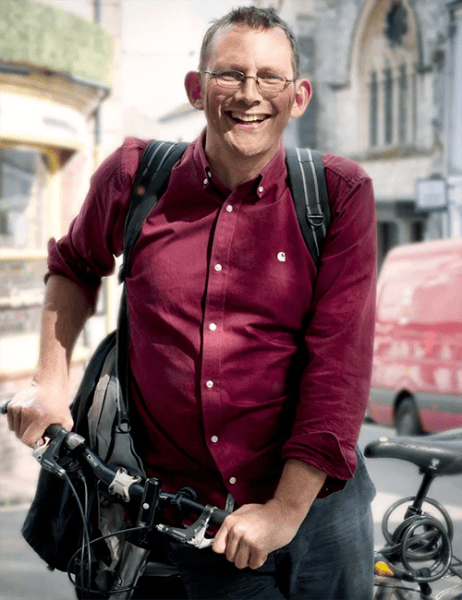
Rob Hopkins is a cofounder of Transition Town Totnes and Transition Network, and the author of The Power of Just Doing Stuff, The Transition Handbook, and The Transition Companion. In 2012, he was voted one of the Independent’s top 100 environmentalists and was on Nesta and the Observer’s list of Britain’s 50 New Radicals. Hopkins has also appeared on BBC Radio 4’s Four Thought and A Good Read, in the French film phenomenon Demain and its sequel Apres Demain, and has spoken at TEDGlobal and three TEDx events.
An Ashoka Fellow, Hopkins also holds a doctorate degree from the University of Plymouth and has received two honorary doctorates from the University of the West of England and the University of Namur. He is a keen gardener, a founder of New Lion Brewery in Totnes, and a director of Totnes Community Development Society, the group behind Atmos Totnes, an ambitious, community-led development project. He blogs at transtionnetwork.org and robhopkins.net and tweets at @robintransition.
DI Martin Kugler
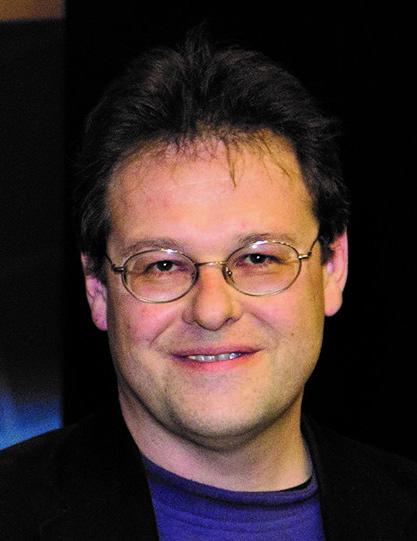
Dipl.-Ing. Martin Kugler was economics and science editor from 2000-2008 and from 2008 on head of research supplements at the daily newspaper "Die Presse". Since 2014 he is editor-in-chief of UNIVERSUM magazine and writes a weekly column for "Presse am Sonntag".
Mag. Miriam Bahn
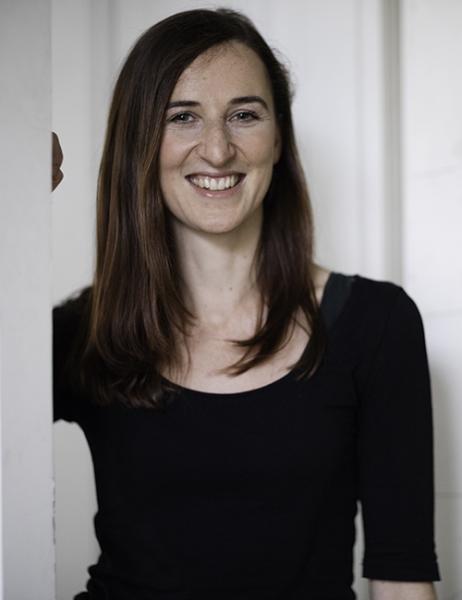
Since 2015 Mag.a Miriam Bahn works in the areas of environmental education and volunteer coordination for GLOBAL 2000, Friends of the Earth Austria. She studied environmental education and social ecology in Vienna and facilitates educational projects and participatory processes connected to sustainability issues. Since many years she is actively engaged in the field of environmental education, amongst others in the association actinGreen which connects theatre education with topics in the field of an education for sustainable development.
Dave Goulson, PhD
Dave Goulson is Professor of Biology at University of Sussex, specializing in bee ecology. He has published more than 290 scientific articles on the ecology and conservation of bumblebees and other insects. He is the author of Bumblebees; Their Behaviour, Ecology and Conservation, published in 2010 by Oxford University Press, and of the Sunday Times bestseller A Sting in the Tale, a popular science book about bumble bees, published in 2013 by Jonathan Cape, and now translated into fourteen languages. This was followed by A Buzz in the Meadow in 2014, Bee Quest in 2017, and The Garden Jungle in 2019. Goulson founded the Bumblebee Conservation Trust in 2006, a charity which has grown to 12,000 members. He was the Biotechnology and Biological Sciences Research Council’s Social Innovator of the Year in 2010, was given the Zoological Society of London’s Marsh Award for Conservation Biology in 2013, was elected a Fellow of the Royal Society of Edinburgh in 2013, and given the British Ecological Society Public Engagement Award in 2014. In 2015 he was named number 8 in BBC Wildlife Magazine’s list of the top 50 most influential people in conservation.
Dr. Monika Janišová
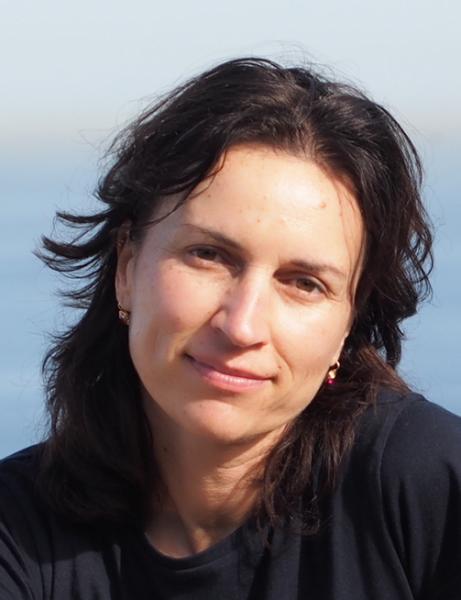
Institute of Botany, Plant Science and Biodiversity Centre, Slovak Academy of Sciences, Banská Bystrica, Slovak Republic
Monika Janišová (1969) is a vegetation ecologist focussing mainly on grasslands, their classification, biodiversity, succession, management and conservation. She is also interested in biogeography and endemism, as well as population biology and conservation of rare plants. Recently, the main subject of her research includes traditional ecological knowledge, bio-cultural heritage and sustainable agriculture in the Carpathian Mountains (Central and Eastern Europe).
Dr. Helmut Burtscher-Schaden
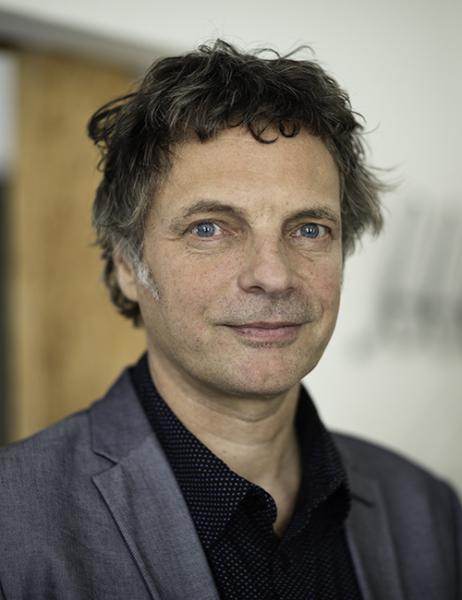
Helmut Burtscher-Schaden studied biochemistry at the Technical University of Vienna and completed his dissertation at the Institute of Immunology at Meduni Vienna. Since 2001, he has been working for the Austrian environmental protection organisation GLOBAL 2000 - Friends of the Earth Austria, on the effects of chemicals on health and the environment. As a result of the controversy over the EU re-registration of glyphosate, Burtscher-Schaden focused his work on the European authorisation procedure for pesticides and the question of the scientific robustness, transparency and independence of regulatory risk assessment. The results of this work include various publications, including the non-fiction book "The Glyphosate File" (K&S), published in 2017, as well as lectures and expert hearings in the European Parliament. Burtscher-Schaden is one of the initiators of the European Citizens' Initiative (ECI) "Stop Glyphosate", whose demand for disclosure of the manufacturer studies submitted in the approval procedure has led to a reform of the EU's General Food Law and to more transparency in all food-related approval procedures. He is also co-initiator of the current ECI "Saving bees and farmers". In view of his work on glyphosate, Burtscher-Schaden was named "Communicator of the Year 2017" by the Public Relations Association Austria (PRVA).
Dr. Martin Wildenberg
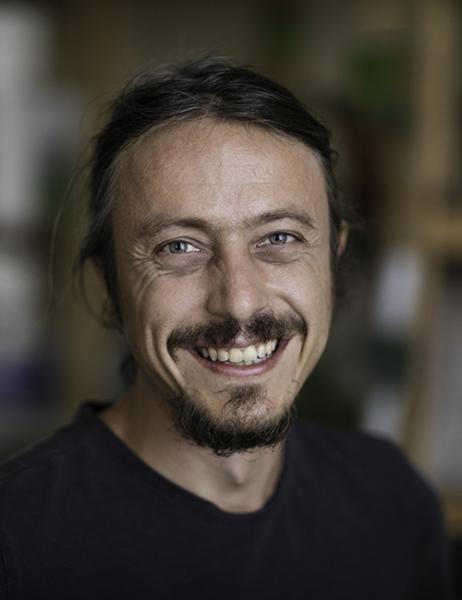
Dr. Martin Wildenberg is a sustainability and biodiversity expert at GLOBAL 2000. He also works as a research assistant at the Center for Sustainability Transformation and Responsibility (STaR) at the Vienna University of Economics and Business Administration.
He studied ecology at the University of Vienna and completed his doctorate in social-ecology at the University of Klagenfurt. He is a member of the Austrian Biodiversity Commission and was responsible for numerous projects in the field of sustainable value chains, sustainable agriculture and nature conservation. He is interested in the transformation towards sustainable societies and in new ways of integrating nature conservation into society in the age of the Anthropocene.
Mrg. Katka Klimova
Katarína Klimová Katarína Klimová works as a project manager in BROZ focusing on sustainable development and nature protection especially in military areas. She studied botany - systematic taxonomy at the Comenius University in Bratislava. Among other topics, she is strongly interested in permaculture, environmental education, sustainable tourism and phytotherapy. She believes, that we as humans, still have a chance to do the big changes that are so much needed, now more than ever, with respect to the beautiful natural world around us.





